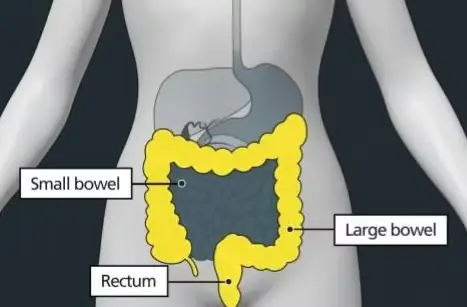Small bowel cancer (also called small intestine cancer) is a rare cancer that starts in the small bowel.
The small bowel is a long, coiled tube that breaks down food and helps vitamins, minerals and other essential substances to be absorbed into the body. The small bowel is part of the digestive system and is situated between the stomach and the large bowel (colon).

Treatment for small bowel cancer at CUH
The treatment you have depends on several factors, which include:
- the type and size of the cancer
- where the cancer is located in the small bowel
- your general health
- whether the cancer has spread
A team of specialists at CUH will meet to discuss your condition and to make a recommendation about the best possible treatment for you.
You, along with your clinician, will then discuss your treatment recommendations at the clinic appointment and decide on the right treatment plan for you. Your clinician will explain the different treatment options and possible side effects.
The treatment for small bowel cancer can include:
- surgery
- systemic therapy
- radiotherapy
Surgery is the most common treatment for small bowel cancer. You may be able to have surgery to remove part or all of the cancer, if the cancer has not spread. Recovery from surgery to treat small bowel cancer can take a long time.
At times, you may require more than one treatment or a combination of different treatments to give the best chance of long-term cure. For some patients, treatment may be given with the aim of curing the cancer. For others, to help control the cancer, prolong life and improve symptoms. Your clinical team will discuss with you what to expect.

